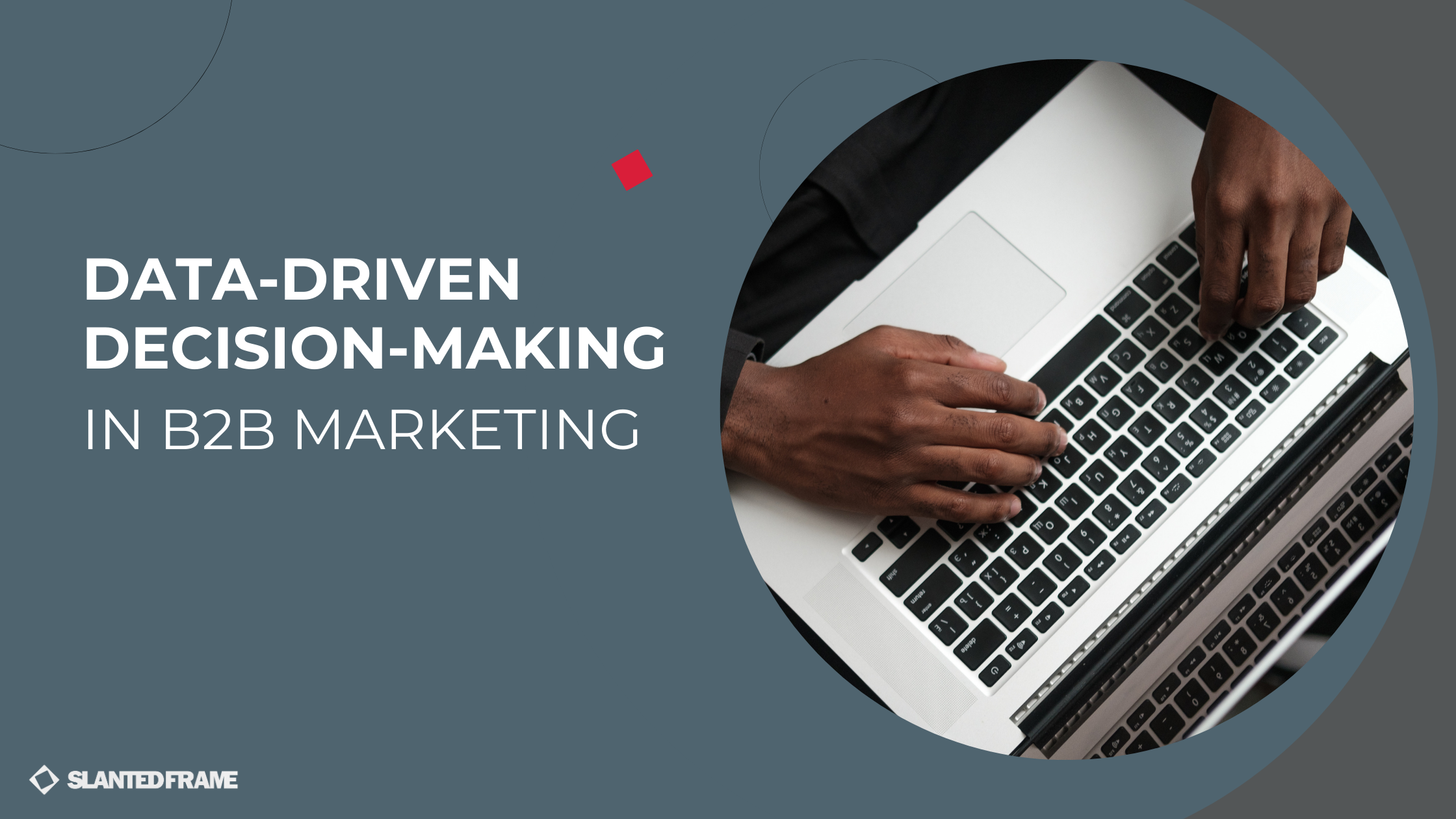As business-to-business (B2B) marketing continues to evolve, the ability to make informed, data-driven decisions has become more critical than ever. Markets are increasingly competitive and customer preferences more sophisticated, and B2B companies are turning to data analytics to gain an edge and drive their marketing strategies forward.
The Importance of Data Analytics in B2B Marketing
Data analytics offers B2B marketers a powerful tool to understand and predict customer behaviour, optimize marketing campaigns, and enhance overall business strategies. By analyzing large sets of data, companies can uncover valuable insights that inform decision-making processes, leading to more effective and efficient marketing approaches.
Customer Insights
One of the key benefits of data analytics is the ability to gain a deeper understanding of your target audience. By analyzing customer data, B2B marketers can identify patterns, preferences, and behaviours that help tailor marketing messages and offers to meet the specific needs of different segments. This level of personalization not only improves customer engagement but also boosts conversion rates and customer loyalty.
Optimize Marketing Campaigns
Data-driven decision-making enables marketers to measure the effectiveness of their campaigns accurately. By analyzing key performance indicators (KPIs), marketers can identify which strategies are working and which are not, allowing them to allocate resources more effectively and adjust their tactics in real-time. This agility ensures that marketing efforts are always aligned with business goals and market dynamics.
Predictive Analytics
Advanced data analytics techniques, such as predictive analytics, allow B2B marketers to forecast future trends and customer behaviours. By leveraging historical data, marketers can make informed predictions about which products or services are likely to be in demand, enabling them to stay ahead of the curve and adjust their strategies proactively.
Leverage Data for Better Marketing Decisions
To harness the full potential of data analytics, B2B companies need to implement a structured approach to data collection, analysis, and interpretation. Here are some steps to help kickstart your data-driven marketing journey:
- Tool Selection: Begin by selecting the right data analytics tools. Consider platforms like Google Analytics 4 for web data, Salesforce for customer relationship data, and Hootsuite for social media analytics.
- Data Collection: Develop a thorough data collection plan, gathering both quantitative and qualitative data from diverse sources such as customer interactions, social media, website analytics, and market research.
- Data Integration: Consolidate your collected data into a unified platform or data warehouse. This integration offers a holistic view, enabling more nuanced analysis.
- Data Analysis: Analyze the integrated data using your chosen tools. Apply descriptive analytics to understand past trends, predictive analytics to forecast future trends, and prescriptive analytics to determine actionable strategies.
- Insight Implementation: Translate your data insights into actionable marketing strategies. Use these insights to tailor your marketing messages, optimize campaign allocation, and refine your overall marketing approach.
- Continuous Improvement: Establish a routine of regular data review and analysis to continually refine and adapt your marketing strategies based on fresh insights.
Emphasize SEO and Keyword Selection
A crucial aspect of leveraging data-driven insights is optimizing your website content for search engines. The selection of the right keywords, informed by data-driven research, is fundamental. This ensures that your website pages and blog posts are targeted effectively, enhancing visibility and engagement. By aligning your content with the specific queries your audience is searching for, you can significantly improve your site’s SEO performance and user relevance.
In Summary…
In conclusion, data-driven decision-making is not just a buzzword but a crucial element in the success of B2B marketing strategies. By embracing data analytics, B2B companies can achieve a deeper understanding of their market and customers, optimize their marketing efforts, and make informed decisions that drive growth and competitiveness in the market.
Haven’t started your data-driven marketing journey yet, or need help interpreting your data? Reach out to us.

